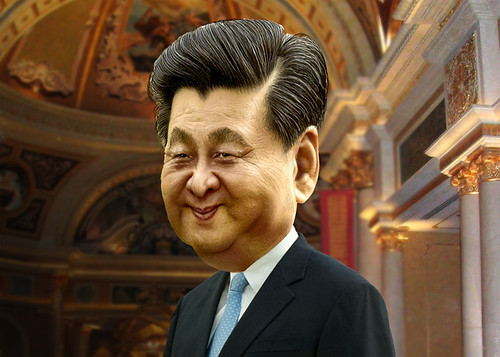In response to President Joe Biden’s recent characterization of President Xi Jinping as a “dictator,” China has fired back, condemning the comments and labeling them as a violation of diplomatic protocol and an open political provocation. Biden’s remarks came shortly after a meeting between Secretary of State Antony Blinken and President Xi, aimed at alleviating escalating tensions between the United States and China.
The trigger for Biden’s comment was the recent incident involving a Chinese spy balloon that was shot down after traversing across U.S. airspace. During his remarks, Biden referred to President Xi as a dictator, raising concerns about China’s actions and its impact on global affairs.
In response, a spokesperson from China’s foreign ministry criticized Biden’s comments as absurd and an affront to diplomatic norms. The spokesperson emphasized that such remarks not only undermined China’s political dignity but also constituted an open provocation on the political front.
President Biden’s choice of words reflects the growing tensions between the United States and China, as both countries grapple with a range of contentious issues, including trade, human rights, and geopolitical influence. The recent meeting between Secretary Blinken and President Xi was an attempt to defuse these tensions and find common ground on areas of disagreement.
However, Biden’s reference to President Xi as a dictator underscores the deep-seated concerns within the United States about China’s political system and its impact on global dynamics. The incident involving the spy balloon only served to further fuel these concerns.
The Chinese government’s swift response demonstrates its determination to defend its political image and assert its diplomatic standing. China has consistently rejected accusations of authoritarianism and emphasized its commitment to its own political system, considering it best suited to the country’s unique circumstances.
The exchange of critical remarks between the leaders of the United States and China highlights the delicate nature of the bilateral relationship and the challenges faced in finding common ground. While diplomatic tensions are not uncommon between major powers, it is crucial for both countries to engage in constructive dialogue and seek avenues for cooperation on issues of mutual interest.
The recent exchange between President Biden and China serves as a reminder of the complex dynamics shaping the relationship between the two nations. As geopolitical competition continues to unfold, finding avenues for cooperation and managing differences becomes increasingly vital to maintaining stability and fostering positive engagement on the global stage.



